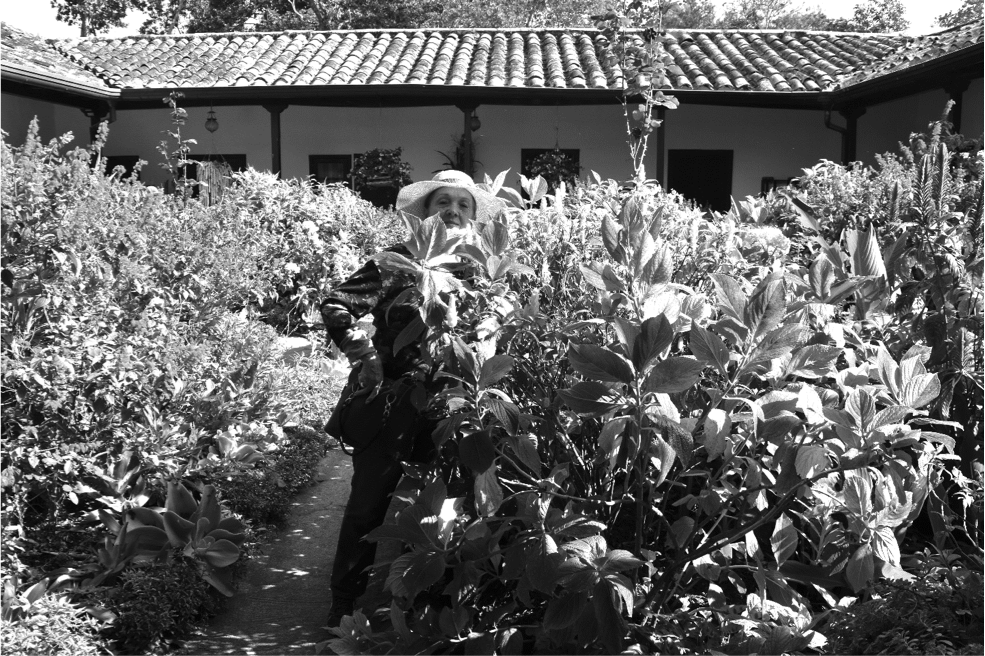.png)
There are three sides to every story.
Alexandre’s: It all started when I said no to the low-hanging fruit…
Some time ago, I graduated from the Université de Sherbrooke (Québec, Canada) with a Bachelor’s Degree in Politics and International Relations. Having developed an aversion for theoretical studies over this experience, I decided to take a break from academia and enroll with some NGOs to do humanitarian work abroad. I flew to South-East Asia to work with local youths seeking to develop employment and entrepreneurial skills. I chose to work with organizations emphasizing on womxn empowerment.


"You deserve to be here. You deserve to exist. You deserve to take up space in this world of men." - MacKenzi Lee
Well… sometimes such organizations seem to be focusing on the “low-hanging fruit,” the most easily-reachable targets. It means that rather than focusing on womxn with lesser privileges, we focus on the ones that constitute the biggest pool of numbers. Over my time in South-East Asia, I reaffirmed my belief that feminism without intersectionality is anything but feminism. Omitting to recognize that every womxn will face different challenges and forms of discrimination is naïve and a privileged statement in itself. As a queer individual, feeling that queer womxn were abandoned like this by many so-called “feminist” organizations was a huge wake-up call for me. I wanted to draw upon this experience and work on a feminist project that is firmly acknowledging this reality.
.png)
Kat’s: It all started after hearing too many similar stories among the womxn in my life…
I used to think I knew what feminism was and that I was a feminist. It wasn’t until Alexandria Ocasio-Cortez (AOC) was elected as a representative of the 14th district of New York, that I truly felt, what a friend had expressed to me a year earlier about Hillary Clinton, “If she can do it, I can do it.” AOC’s election has had not only political significance but also symbolic value in showing a twenty-something womxn of color like me that I could achieve a position of influence historically reserved for white men in the U.S. I also realized I had been subscribing to the type of American feminism that defaulted to the experience of white womxn, the very type of feminism that I was being excluded from and that only more recently is bringing attention to identity intersectionalities.
Fast forward a few privileged years of working abroad, I have made efforts to keep in touch with my closest mentors and family members, hearing about their life experiences, exchanging anecdotes. My mother opened my eyes to the lack of medical and community support for womxn going through (peri)menopause when she took years to find semi-adequate treatment for her hormonal changes.

A former professor recounted her challenges at work with digital ageism, as her employer established new technological requirements without supporting employees with mixed levels of digital literacy. Through conversations with my grandmother, I became aware of how much the rest of the family underestimated her capacity to learn new things based on her lack of formal education, which was relatively common among womxn in her generation/demographic. All of these stories dealt with discrimination towards womxn because of their age, and I started to question why, for example, younger models dominated clothing catalogues, or why womxn of all ages were/are constantly being encouraged to “anti-age.”
A years-long domino effect of realizations led me to decide enough was enough. It was time to intentionally seek out more stories and expertise on womxn and aging/ageism. Perhaps as an homage to the womxn in my life, but also to future older womxn, I want to find ways to make our iteration of feminism more inclusive and ensure womxn around the age of 50 or older are represented, heard, supported, and celebrated.
.png)
Envisâge’s: It all started when we heard about BØWIE…
In the context of our graduate studies in sustainable human development at Tsinghua University (Beijing, China) and the University of Geneva, we both met. We both distinguished ourselves in our academic community for being vocal about gender-related issues in sustainable development. As the COVID-19 hit, we made the most out of the global shift towards online presence to re-invent ourselves/stay engaged in the movement for gender equity. When we heard about the BØWIE gender+ projects incubator in March, it was a clear sign for us that we needed to apply. Combining our values and life experience, we created Envisâge.
.png)
When we look at discussions surrounding gender equality and feminism, it appears clear for us that ageism is way too often on the back burner. Although we are both not identifying as an older womxn, we decided to influence this reality. Aspiring to be allies, we take all the possible precautions to create a project that is not the reflection of our own bias. We try to build a platform for womxn and specialists of questions related to ageism towards womxn. Along this learning quest, we listen, then listen, and finally, we continue to listen.
.png)
By interviewing individuals with fascinating life-story and testimonies on ageism towards womxn, we hope to highlight how diverse are the forms taken by ageism. For example, did you know that womxn will have significantly less power on medical decisions regarding their own body as they age? We did not!
Be a part of the next chapter of our story!
As we continue to organize our Envisâge 2020: International Conference on Ageism towards Womxn, we would be genuinely excited if you would join us on this adventure! How?
- Follow us on Facebook, Instagram, and LinkedIn
- Share and RSVP to the Envisâge 2020 Conference
- Explore our website and read the Envisâge Blog on ageism
- Watch the Envisâge Interview Series on YouTube
- Email us: envisage.no.ageism@gmail.com
.png)

